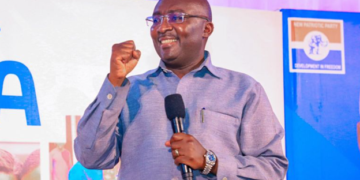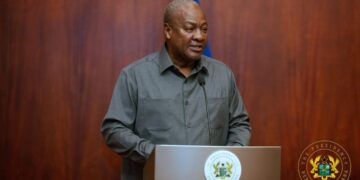
The Consolidated Bank Ghana (CBG) Limited, which took over Heritage Bank after the Bank of Ghana (BoG) revoked the licence of the latter, has announced that all former branches of the local bank will cease operations on Thursday, 28 February 2019, except two.
“Please be informed that with the exception of the Tema Community 1 and Suame – Kumasi branches, CBG will cease to operate the former branches of Heritage Bank after close of business on Thursday, 28 February 2019,” Mr Vish Ashiagbor, the Receiver at CBG stated in a press release on Monday, 25 February 2019.
The statement added: “Unless specifically requested, all the Receiver’s consultant staff will no longer be required to physically report to work at the former branches or Head Office daily”.
The statement added that the latest development “does not affect the terms of the existing consultancy contract between the Receiver and the Consultant Staff. Accordingly, allowances will be paid in line with the consultancy contracts for the term of the contract which ends on 31 March 2019”.
About 350 staff were employed by the erstwhile Heritage Bank. They were given a three-month contract by the Receiver following the revocation of the licence. With only two branches being maintained, it is likely a majority of the 350 workers will lose their jobs after the expiration of the three-month contract in March.
The BoG revoked Heritage Bank’s licence on Friday, 4 January 2019 on the basis that the majority shareholder, Mr Seidu Agongo, among other things, used proceeds realised from alleged fraudulent contracts he executed for the Ghana Cocoa Board (COCOBOD), for which he and former COCOBOD CEO, Dr Stephen Opuni are being tried, to set up the bank.
Announcing the withdrawal of the licence, the Governor of the central bank, Dr Ernest Addison told journalists – when asked if he did not deem the action as premature, since the COCOBOD case was still in court – that: “The issue of Heritage Bank, I wanted to get into the law with you, I don’t know if I should, but we don’t need the court’s decision to take the decisions that we have taken. We have to be sure of the sources of capital to license a bank; if we have any doubt, if we feel that it’s suspicious, just on the basis of that we find that that is not acceptable as capital. We don’t need the court to decide for us whether anybody is ‘fit and proper’, just being involved in a case that involves a criminal procedure makes you not fit and proper”.
However, Mr Agongo responded with a press statement in which he said that the “not fit and proper” tag stamped on him by the central bank was “capricious, arrogant, malicious and in bad faith”.
According to Mr Agongo, “In purportedly making the determination, the central bank obviously had little regard for the time-honoured principle that a person is presumed innocent until proven guilty by a court of competent jurisdiction”, adding that: “The fact that I have a case pending before the High Court is a matter of public knowledge but my guilt or innocence is yet to be determined by the Honourable Court”.
“The determination that I am not a fit and proper person to be a significant shareholder of HBL because the central bank suspects the funds are derived from illicit or suspicious contracts with Cocobod is not only calculated to pre-judge the outcome of the criminal proceedings but also violative of the principle of presumption of innocence to which every individual is entitled. Since when has suspicion become a substitute for credible evidence?” Mr Agongo asked.
Source: Ghana/AccraFM.com


































